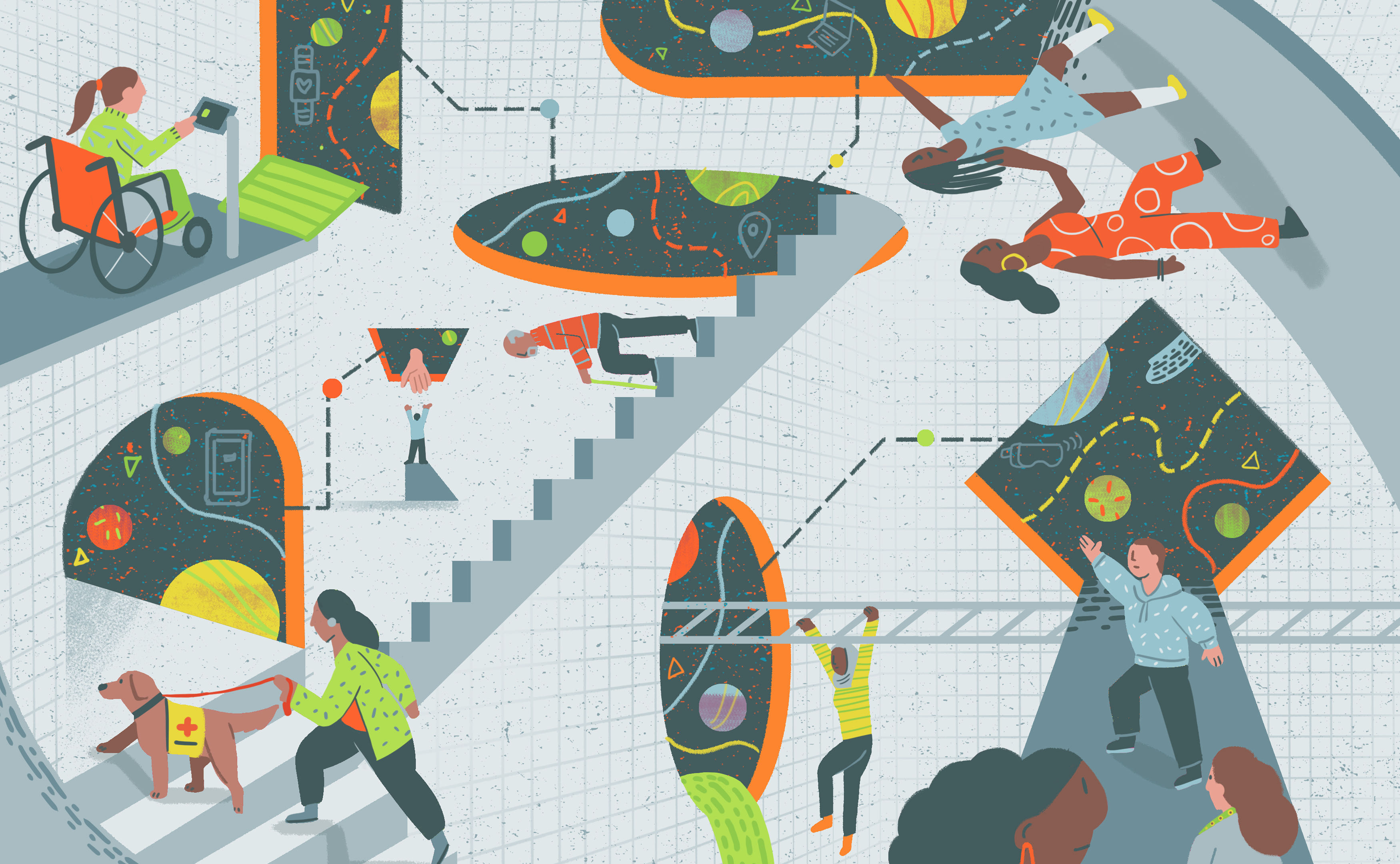Accessible and Representative Imageries and Imaginaries of AI - AIUK24 Fringe Event¶
This page provides further detail on the Accessible and Representative Imageries and Imaginaries of AI event, to be held as a hybrid event on March 28th at The Alan Turing Institute's office in London.
 Illustration by Jonny Lighthands.
Illustration by Jonny Lighthands.
Key information¶



To join the event, please visit the registration page here to fill out the form.
This event is part of the AI UK Fringe 2024, a series of events exploring key topics around data science and AI. To see the full lineup of events, click here.
If you have any questions about registration, or require further details, please contact Youmna Hashem at yhashem@turing.ac.uk
Agenda¶
12:30pm: Introductions, arrival and networking.
1pm - 2:15pm: Panel discussion + Q&A.
2:15 - 2:30pm: Break.
2:30pm - 4:15pm: Workshop.
4:15pm - 5:00pm: Wrapping up - with refreshments being served at the location.
Introduction to the event¶
The event focuses on two intersecting normative axes of accessibility and representativeness, which are in urgent need of increased critical engagement in global AI images and visual art practices. The event will involve:
- A panel discussion with invited speakers profiling relevant research within the Turing and by external partners on AI ethics, data justice, and open science;
- An interactive workshop designed to engage participants in a critical examination of AI-generated imagery.
Aims and objectives¶
The overarching aim is to address the hidden assumptions, abilities, knowledges, and interpretations that shape how AI is represented in images and is used in image generation. The goal of this event is both to explore ways to make AI more accessible to different human capabilities (e.g. social, physical, and mental abilities), and to investigate how to make AI outputs more representative of diverse populations, reflecting a broader range of lived experiences.
By the end of the event, we hope you will feel better equipped to critically examine representations of AI, the visual outputs these systems generate, and how they can be better reflective of different abilities, forms of knowledge, diverse lived experiences, and socio-cultural global practices.
Panel¶
The introductory panel discussion will be on normative framings of data justice and accessibility principles based on research undertaken within the Turing Commons, Turing Way, and Advancing Data Justice project teams. The panel discussion will provide critical and normative framings for the ensuing interactive workshop activity, which invites a curated mix of participants to delve into the often-unseen human labour and subjective interpretations that contribute to the creation of AI imagery. The panel discussion will interrogate how these can be made more inclusive and representative of a wider public.
Join a stellar list of speakers:
Dr SJ Bennett Postdoctoral Researcher - Algorithmic Societies, Durham University
Corrine Chan London-based Taiwanese Artist
Sarah Selby Visual artist and Senior Lecturer, Creative ComputingSenior Lecturer, Creative Computing, University of the Arts London
Dr Olive Gingrich Artist and Programme Lead, University of Greenwich
Dr Mike Katell Ethics Fellow, The Alan Turing Institute & Visiting Senior Lecturer,Digital Environment Research Institute, QMUL.
Workshop¶
The workshop will involve, as a first activity, a socio-technical deconstructing of curated AI Imageries where participants will engage in the critical analysis of a selection of images of the AI technologies and AI-generated images. Building on insights from this first activity, participants will then collaboratively reimagine the foundations of AI imagery.
The workshop is aimed at a broad and multidisciplinary group of stakeholders, including artists, researchers, students, and creative and technology professionals, for a diverse participation.
Both the panel and the workshop will provide an opportunity for an open and accessible discussion on the roles of underlying algorithms, design choices, and contextual factors that can influence AI imagery. Activities will examine how AI imagery can represent diverse subjects and environments, replicates biases and harms, and how a normative framing can allow for a practical and ethical appraisal of AI image creation.
